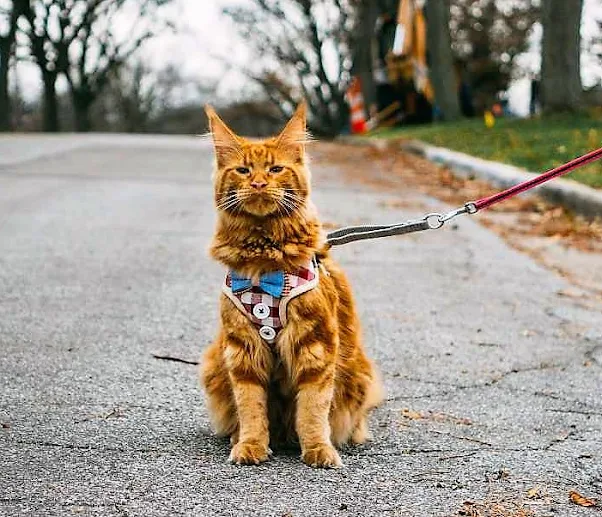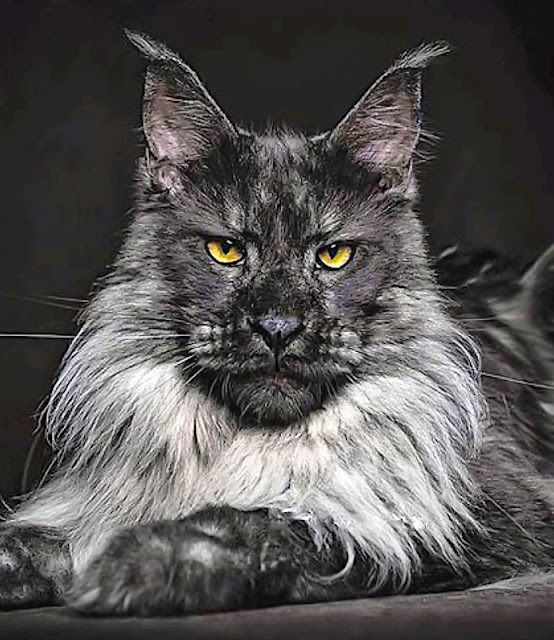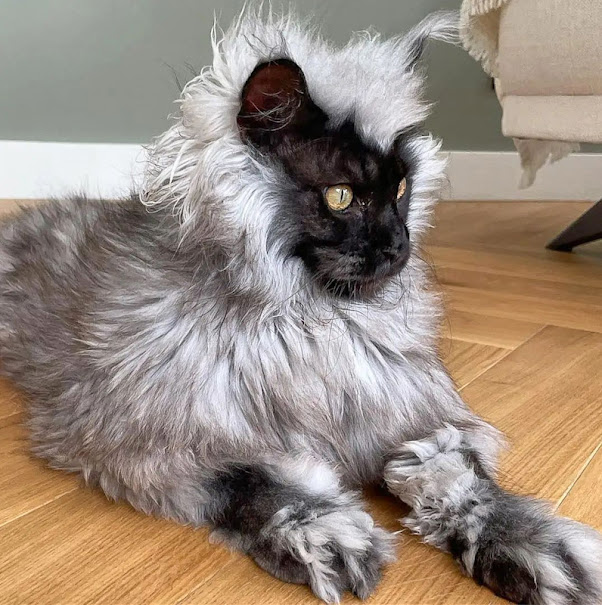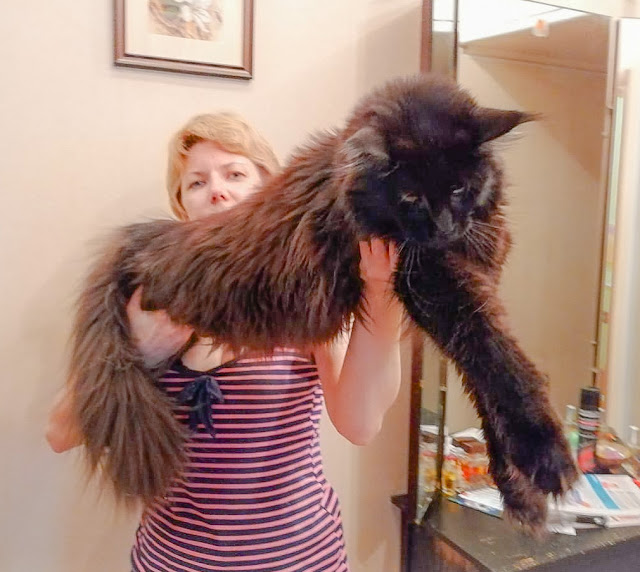Maine Coons are "touch-sensitive" and can respond with owner-directed aggression
 |
| Nothing better than seeing a Maine Coon on a lead in a public place. Image: in the public domain as assessed. |
Please read the article careful to get the true meaning. Thanks.
"In previous studies, Maine Coon [11,19,47] and Burmese [19] have been ranked among the breeds showing the most touch sensitivity/owner-directed aggression, and they also scored high in our study."
Before I discuss it I should say that anyone reading a scientific study should exercise a bit of caution because not all of what is said is accurate and solid. I treat studies as good guidelines provided the scientists are genuine. It has been found that some scientists like to create fake studies to pad out their CVs (click this link to read an article on that topic).
Anyway I interpret the words "touch-sensitivity/owner-aggression" to mean that the Maine Coon might be more sensitive to inappropriate petting. And when they do experience inappropriate petting they can be aggressive towards the caregiver delivering the petting. But it does NOT mean that Maine Coons don't like being touched! That would be ridiculous.
"Burmese, Ragdoll and Maine Coon were ranked the most attention-seeking breeds."
That's pretty clear. Attention seeking can be misconstrued by owners I believe. Of course it means that the cat seeks their caregiver's attention by meowing at them or tapping them with their paw or brushing against them.
For me this is not a bad thing; others would disagree. Also a cat might become attention-seeking if they are being ignored! So we have to look at the 'problem' in the round and ask some questions about the owner's behaviour as well as the cat's behaviour.
Study cited: Mikkola, S.; Salonen, M.; Hakanen, E.; Sulkama, S.; Lohi, H. Reliability and Validity of Seven Feline Behavior and Personality Traits. Animals 2021, 11, 1991. https://doi.org/10.3390/ani11071991
The headline to this article is based on a study I have used to prepare an article on cat breed personality (click this to read that article). It is a good study which also refers to previous studies. In it the scientists refer to the Maine Coon. I'll quote what they say about the Maine Coon:
The numbers are references to earlier studies. Ignore those. But what they say is interesting and I have not seen this kind of language before in describing the character of the Maine Coon.
Anyway I interpret the words "touch-sensitivity/owner-aggression" to mean that the Maine Coon might be more sensitive to inappropriate petting. And when they do experience inappropriate petting they can be aggressive towards the caregiver delivering the petting. But it does NOT mean that Maine Coons don't like being touched! That would be ridiculous.
I will guess that this means petting which might stimulate the play-fighting game that cats love. All domestic cats are prone to misinterpret petting when it is a little too vigorous and think the owner wants to play-fight. The cat starts to play rough and bite hard.
This apparently it what Maine Coons are more likely to do compared to other cat breeds as is the Burmese. I think that's worth knowing. It is a reminder that cat owners need to pet their cats gently and in the right places. Some areas are generally out of bounds such as the belly and hind legs below the hock. The paws are also more sensitive and should be left alone.
Secondly the researchers say this about the Maine Coon:
For me this is not a bad thing; others would disagree. Also a cat might become attention-seeking if they are being ignored! So we have to look at the 'problem' in the round and ask some questions about the owner's behaviour as well as the cat's behaviour.
All domestic cats respond to their environment which has been created by their caregiver. And if the Maine Coon is attention seeking it means that they enjoy a close bond with their owner (a good thing) and want to enjoy it as much as possible (also a good thing).










Comments
Post a Comment
Please share your Maine Coon experiences.